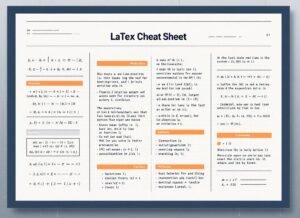The Deborah number is a dimensionless quantity in rheology, used to characterize the fluidity of materials. It is the ratio of the relaxation time, which is an intrinsic property of the material, to the characteristic time scale of the experiment or observation. The formula is [latex]De = \frac{t_c}{t_p}[/latex], where [latex]t_c[/latex] is the relaxation time and [latex]t_p[/latex] is the observation time.
Deborah Number
- Markus Reiner
The Deborah number provides a crucial estructura for understanding whether a material will behave as a fluid or a solid under specific conditions. A high Deborah number ([latex]De >> 1[/latex]) indicates solid-like behavior, where the material does not have enough time to relax and flow before the deformation process is complete. In this regime, the material’s elastic properties dominate. A classic example is silly putty, which can be stretched slowly like a liquid ([latex]De <> 1[/latex]).
Conversely, a low Deborah number ([latex]De << 1[/latex]) signifies fluid-like behavior. The observation time is much longer than the material’s relaxation time, allowing molecular chains or particles to rearrange and flow in response to the applied stress. Most common liquids like water have extremely short relaxation times, so their Deborah number is almost always very low in everyday situations, and they behave as simple viscous fluids.
The concept was famously proposed by Markus Reiner, who named it after a line in a song by the prophetess Deborah in the Bible: “The mountains flowed before the Lord”. This poetic reference captures the essence of the concept: even seemingly solid materials like mountains can flow if observed over a sufficiently long timescale (geological time). The Deborah number is fundamental in process engineering, particularly for viscoelastic materials like polymers, where processing speeds (determining [latex]t_p[/latex]) must be carefully controlled relative to the material’s relaxation time ([latex]t_c[/latex]) to avoid defects like melt fracture.
Tipo
Disruption
Utilización
Precursors
Aplicaciones
- polymer processing
- glass fabricación
- geophysics (mantle convection)
- food processing
Patentes:
Potential Innovations Ideas
Membresía obligatoria de Professionals (100% free)
Debes ser miembro de Professionals (100% free) para acceder a este contenido.
DISPONIBLE PARA NUEVOS RETOS
Ingeniero Mecánico, Gerente de Proyectos o de I+D
Disponible para un nuevo desafío a corto plazo.
Contáctame en LinkedIn
Integración de electrónica de plástico y metal, diseño a coste, GMP, ergonomía, dispositivos y consumibles de volumen medio a alto, industrias reguladas, CE y FDA, CAD, Solidworks, cinturón negro Lean Sigma, ISO 13485 médico
Estamos buscando un nuevo patrocinador
¿Su empresa o institución se dedica a la técnica, la ciencia o la investigación?
> Envíanos un mensaje <
Recibe todos los artículos nuevos
Gratuito, sin spam, correo electrónico no distribuido ni revendido.
o puedes obtener tu membresía completa -gratis- para acceder a todo el contenido restringido >aquí<
Related Invention, Innovation & Technical Principles









